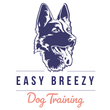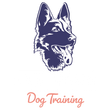Forever Learners: Overcoming Complacency in Training As Our Dog Ages
I’ve noticed in the last year I have become complacent in my training with Finlay. He’s 5 ½ years old and I put a LOT of C.P.R (Consistency, PATIENCE & Repetition) in his training those first two years of adopting him (he was 2yrs old). Now that his barking, leash reactivity and recall are great (for the most part….he is a sheepdog after all!) I realized I don’t do nearly as much circuits, general training, impulse control or recall with him as we used to. I mean, as a dog trainer, training happens with me ALL the time but I don’t carve out time in the day like I did when I first adopted him.

I will sometimes get phone calls from past puppy clients whose dogs are now 1 ½ - 2 years old and are having some behavioural challenges. After answering some questions, clients quickly realized that they weren’t as consistent as before. Their dog was listening and behaving so they started to let them get away with certain things. Over time, with certain behaviours being rewarded (inadvertently sometimes), they start to become an issue again.
As our beloved canine companions age, it's tempting to ease up on training and enrichment activities, assuming they no longer require as much physical and mental stimulation. However, this mindset can lead to complacency and missed opportunities for continued growth and connection with our dogs as they age.
- Mental Exercise Matters: Just like humans, dogs benefit from mental exercise throughout their lives. Mental stimulation not only keeps their minds sharp but also enhances their overall well-being and quality of life. An enriched dog is a tired dog!
- Keep Training Sessions Short and Sweet: While older dogs may not have the same stamina as their younger counterparts, they are still capable of learning and mastering new skills. We don’t necessarily need to provide as much as we once did but it should still be part of a daily routine.
- Focus on Bonding and Connection: Training isn't just about teaching commands; it's also an opportunity to strengthen the bond between pet and owner. Find new relaxing activities like gentle grooming, massage, and quiet time together, which promote relaxation and deepen the emotional connection with our older dogs.
- Adapt Training to Their Needs: As dogs age, they may experience physical limitations. As Finlay ages, he requires different training like body conditioning stretches to keep him limber and his muscles loose. Providing more scent and nose work vs chasing a flirt pole or high-impact sports. We need to adjust our expectations based on their abilities. Every dog is different!
- Seek Professional Guidance: Enlist the help of a professional dog trainer, especially when dealing with age-related challenges or behaviour issues. We'll encourage pet parents to seek guidance and support from qualified professionals who can tailor training plans to suit their older dog's individual needs.
Age is not a barrier to learning. The saying “You can't teach an old dog new tricks” is completely false! My old girl Breeze, was 10 years old when I did my dog trainer certification and she came to “school” with me and learned so many new things in her senior years. As our dogs age, they can continue to grow and develop with the right approach to training and enrichment. By staying proactive, adaptable, and mindful of their evolving needs, pet parents can ensure that their older dogs lead fulfilling and enriched lives, filled with love, companionship, and learning opportunities.





Leave a comment